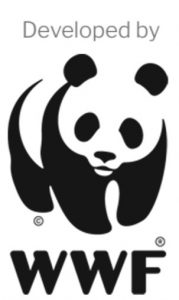In the US, about 63 million tons of food are wasted each year, with 40% coming from consumer-facing business, including restaurants and hotels.
This waste occurs while 41 million Americans, including 13 million children, are food insecure, and it poses one of the biggest environmental threats to the planet. Reducing food waste is one of the easiest and most effective ways to reduce the environmental impact of our food system and feed our communities.
The hotel community is ready to be part of the solution.
Why was this toolkit created?
World Wildlife Fund (WWF) and the American Hotel and Lodging Association (AHLA), with support from The Rockefeller Foundation, came together to work with the hospitality industry on understanding and reducing food waste. Through research and a series of demonstration projects with properties across the country, innovative strategies were identified to engage staff, partners and guests in cutting waste from hotel kitchens.
Participating hotels saw reductions of 10-38% in just 12 weeks. If this scaled across the industry – it would eliminate half a million tons of waste within a year.
This toolkit provides the background, tools and resources a property of any size needs to:
PREVENT food waste from occurring at their properties;
DONATE what cannot be prevented but is still safe for people to eat; and
DIVERT the rest away from landfills.
Who is this toolkit for?
Full service hotels, because changes in buffet and banquet service can have major impact. But the toolkit includes valuable approaches that can be applied to all property formats and food service institutions, including restaurants, cruises, and catering companies.
How do I use the toolkit?
You can start by selecting your role and get relevant content tailored to your responsibilities, or page through the toolkit beginning here. Use the + to jump directly to topics you want.
Read Case Studies from properties who’ve started reducing waste and learn from their successes and challenges.
Or find and download the resources you need here.
What are the benefits?
Reducing food waste at your properties does a lot more than feed people and help the environment: it can directly impact your bottom line, engage your staff, and strengthen relationships with your customers. Specifically, we found these strategies can:
- SAVE MONEY. Demonstration projects saw at least 3% reduction in food costs.
- EMPOWER STAFF. More than 90% of staff reported they wanted to take action to reduce food waste.
- MEET CUSTOMER DEMAND. Individuals, meeting planners and corporate clients, especially large consulting firms, expect their event venues to act sustainably, including minimizing waste and working with community partners to donate remaining food.
What are the costs?
Implementing a food waste strategy includes staff training time and separation and measurement tactics. You can also invest in advanced food waste tracking technologies, which have higher upfront costs but have proven to provide up to a 50% reduction in food waste, with cost savings in the tens of thousands at some full service hotels.
Acknowledgements
WWF would like to thank the American Hotel and Lodging Association for their leadership on this project; The Rockefeller Foundation for their generous support; the ten properties who went above and beyond their daily duties to make this project a success; the members of our working group who helped conceive of this effort; and all of the reviewers who provided invaluable feedback on the contents of this toolkit.


